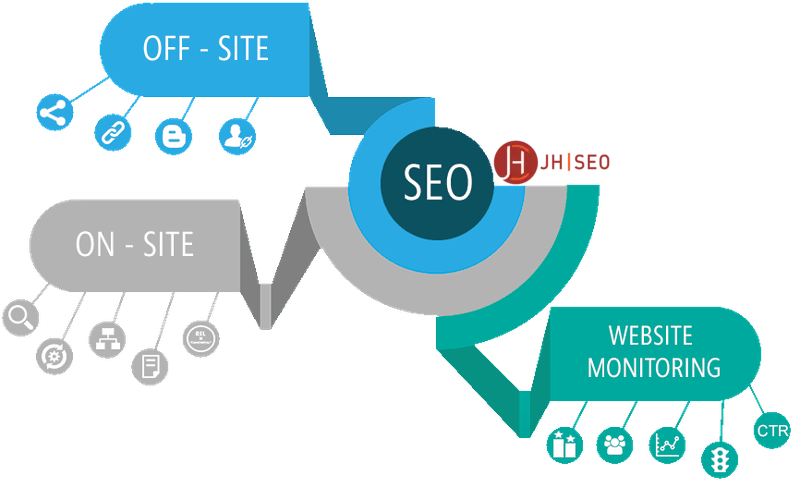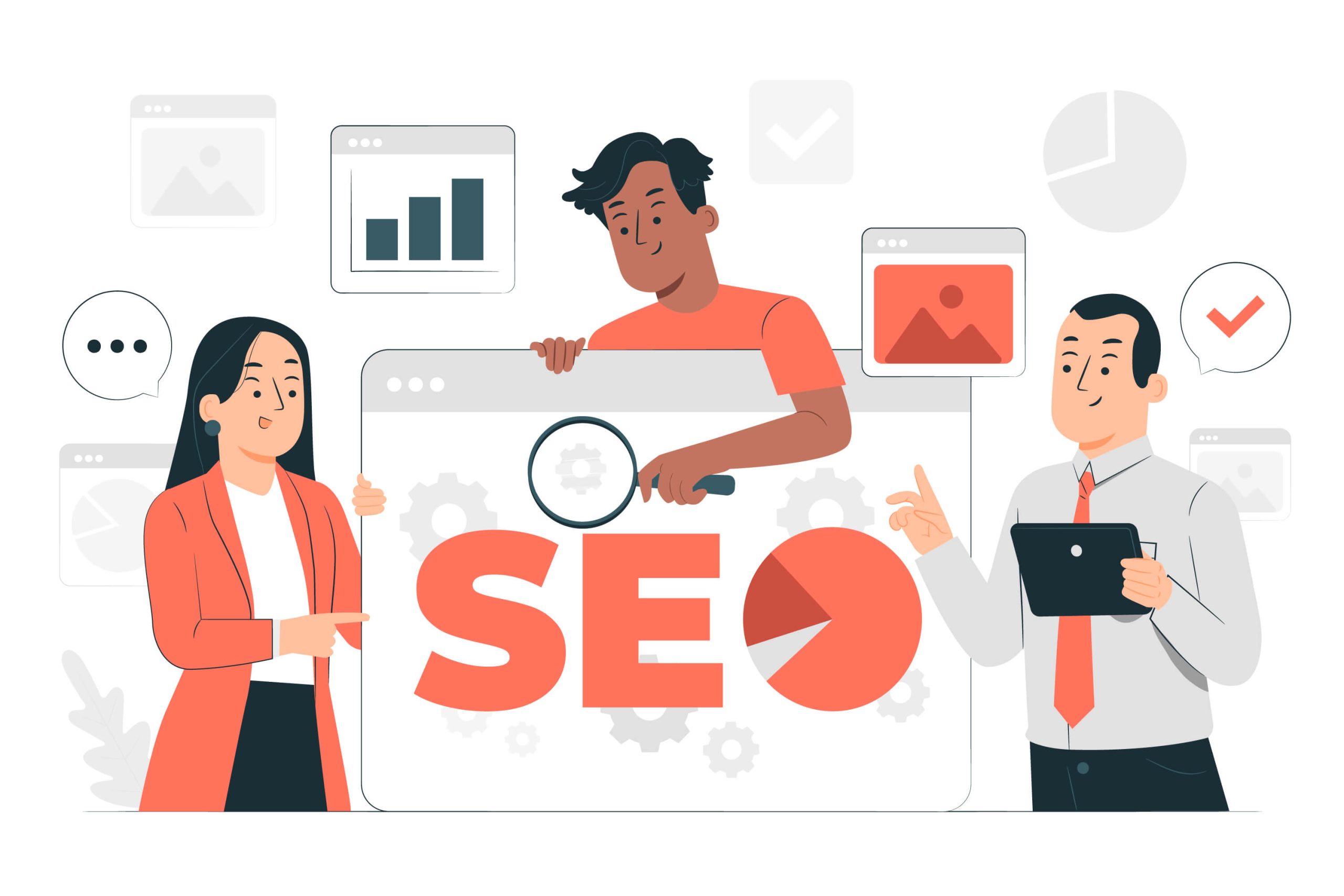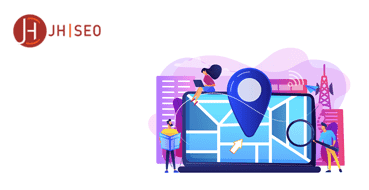Search Engine Optimization (SEO) is the process of improving a website’s visibility on search engines like Google. For small businesses, SEO is crucial because it helps attract potential customers who are actively searching for products or services online. Without proper SEO, even the best businesses may struggle to compete with larger brands that dominate search results. By implementing SEO best practices, small businesses can increase their online presence, drive more organic traffic, and ultimately boost sales.
SEO helps businesses rank higher on Google by optimizing various elements of their website to align with search engine algorithms. Google’s ranking system considers factors like website structure, content quality, and user experience. When a website is optimized correctly, it becomes easier for search engines to understand its relevance to user queries, increasing the likelihood of appearing on the first page of search results. Since most users rarely go beyond the first page, ranking higher can significantly impact a business’s visibility and credibility.
The foundation of SEO revolves around three key elements: keywords, content, and backlinks. Keywords are the terms and phrases that potential customers type into search engines. By strategically incorporating relevant keywords into web pages, businesses can signal to Google what their site is about. Content plays a crucial role in engaging users and providing value, whether through blog posts, product descriptions, or FAQs. High-quality, informative content increases dwell time and encourages repeat visits. Finally, backlinks—links from other reputable websites—act as votes of confidence that improve a site’s authority. The more authoritative and relevant backlinks a website earns, the better its chances of ranking higher in search results.
Why Is SEO Essential for Small Businesses in Los Angeles?
Los Angeles is one of the most competitive markets in the country, with thousands of businesses vying for customer attention both online and offline. Whether you run a local law firm, boutique shop, or restaurant, the digital landscape in LA is saturated with businesses trying to rank at the top of Google’s search results. Without a strong SEO strategy, small businesses risk being overshadowed by larger corporations and well-established brands that dominate online searches. Investing in SEO allows small businesses to level the playing field and improve their chances of being discovered by potential customers.
High Search Volume for Local Services
Millions of residents and visitors use Google daily to find local businesses. Without proper SEO, businesses miss out on valuable opportunities to attract new clients. Common search queries include:
- “Best personal injury attorney in Los Angeles”
- “Top-rated coffee shop near me”
- “Affordable plumbing services in LA”
Optimizing for these high-intent searches ensures a business remains visible to its target audience at the right time.
How Small Businesses Can Stand Out in a Crowded Market
Despite the heavy competition, small businesses in Los Angeles can gain an edge by implementing smart SEO strategies, including:
- Focusing on Local SEO – Optimizing for location-based searches to appear in Google’s local pack.
- Google Business Profile Optimization – Keeping business details accurate and updated to improve search visibility.
- Creating High-Quality, Relevant Content – Publishing blogs, FAQs, and service pages to target customer queries.
- Earning Local Backlinks – Getting listed in local directories, industry websites, and community blogs.
- Enhancing User Experience – Ensuring a fast, mobile-friendly website to improve engagement and conversions.
By prioritizing these SEO tactics, small businesses can increase their online presence, attract more customers, and compete effectively in the fast-paced Los Angeles market.
How Does Local SEO Help Small Businesses Compete?
Local SEO is one of the most powerful tools for small businesses looking to compete in a crowded market like Los Angeles. Unlike general SEO, which focuses on ranking a website for broad search terms, local SEO helps businesses appear in searches relevant to their specific geographic area. This is especially important for:
To optimize your Google Business Profile:
- Service-based businesses (e.g., law firms, plumbing companies, and medical practices)
- Brick-and-mortar stores (e.g., restaurants, boutiques, and coffee shops)
- Businesses relying on local foot traffic or appointments
By optimizing their online presence for local searches, small businesses can increase:
- Foot traffic from customers searching nearby
- Phone calls from local prospects needing immediate services
- Website visits from potential clients in their area
The Importance of Google Business Profile Optimization
A well-optimized Google Business Profile (GBP) is essential for local SEO success. Google’s local pack (the business listings shown at the top of search results with a map) pulls information from GBP listings. To improve visibility, small businesses should:
- Claim and verify their GBP listing
- Provide accurate business details (name, address, phone number, and business hours)
- Add high-quality images of their business, products, or office
- Collect and respond to customer reviews to boost credibility
- Post regular updates about promotions, events, or business changes
Businesses that keep their GBP active and up to date are more likely to appear in Google’s local search results and attract nearby customers.
Local Citations and NAP Consistency (Name, Address, Phone Number)
Citations refer to online mentions of a business’s name, address, and phone number (NAP) across different platforms. These citations help search engines verify a business’s legitimacy and improve its local rankings. Small businesses should:
- Ensure their NAP information is identical across all listings
- Get listed in local directories such as Yelp, Yellow Pages, and industry-specific sites
- Check for and correct any inconsistencies in business information
Inconsistent or incorrect details can confuse both search engines and potential customers, negatively impacting local SEO performance.
Using Location-Based Keywords to Attract Local Customers
To rank higher in local searches, businesses should strategically use location-based keywords in their:
- Website content (e.g., service pages, homepage, and blog posts)
- Meta descriptions and title tags
- Google Business Profile description
For example, a law firm in Los Angeles should target:
- Los Angeles personal injury attorney
- Best small business lawyer in LA
- Top-rated divorce lawyer near me
Using natural, localized keywords in content helps Google understand a business’s location and relevance, making it more likely to show up in local search results.
Best SEO Strategies for Small Businesses in Los Angeles
For small businesses in Los Angeles, a strong SEO strategy is essential to compete in a highly saturated market. By optimizing their website, targeting the right keywords, leveraging content marketing, and building high-quality backlinks, businesses can improve their online visibility and attract more customers. Below are the best SEO strategies to help small businesses rank higher and stand out in local search results.
How to Optimize Your Website for Search Engines
Mobile-Friendliness and Page Speed Optimization
Google prioritizes mobile-friendly websites in search rankings since most internet users browse on mobile devices. Small businesses should:
- Ensure their website is responsive (adjusting seamlessly across all screen sizes).
- Optimize page speed to reduce bounce rates and improve rankings.
- Use Google’s PageSpeed Insights to identify and fix performance issues.
- Compress images and enable browser caching to load pages faster.
- Minimize unnecessary code and scripts that slow down performance.
Structuring URLs and Meta Tags for Better Rankings
URLs and meta tags help search engines and users understand what a webpage is about.
- Use short, descriptive URLs with keywords (e.g., www.losangeleslawfirm.com/personal-injury-attorney).
- Optimize title tags (under 60 characters) with primary keywords.
- Write compelling meta descriptions (150-160 characters) to improve click-through rates.
- Ensure each page has a unique, keyword-rich title tag and meta description.
Creating High-Quality, Keyword-Rich Content
Google rewards websites that provide valuable, informative, and engaging content. Small businesses should:
- Create service pages, blog posts, and FAQs that answer customer queries.
- Include relevant keywords naturally while maintaining readability.
- Avoid duplicate or thin content that adds little value.
What Are the Best Keyword Strategies for Local SEO?
Researching Long-Tail and Geo-Specific Keywords
Targeting long-tail and geo-specific keywords helps small businesses rank for less competitive, high-intent searches.
- Example: “Best personal injury attorney for car accidents in Los Angeles” (more specific and easier to rank than “Los Angeles lawyer”).
- Use keyword research tools like Google Keyword Planner and Ahrefs to find location-based search terms.
How to Use Keywords Naturally in Content and Meta Descriptions
- Place keywords strategically in headings, subheadings, meta descriptions, and within the first 100 words of content.
- Write conversational, user-friendly content where keywords fit organically.
- Include synonyms and related terms to enhance relevance without overloading content.
Avoiding Keyword Stuffing and Following Best Practices
Overloading content with keywords can result in Google penalties. Instead:
- Use a natural, semantic approach by incorporating synonyms and related phrases.
- Prioritize readability and user experience over forcing in exact-match keywords.
- Balance keyword usage with valuable, informative content.
How to Leverage Content Marketing for SEO Success
Blogging and Creating Informative, Engaging Content
A blog is an excellent way to:
- Target new keywords and rank for more search queries.
- Answer common customer questions.
- Establish industry authority and credibility.
Example blog topics:
- “What to Do After a Car Accident in Los Angeles”
- “How to Choose the Best Lawyer for Your Business Needs”
The Power of Video and Visual Content in SEO
Google favors engaging, multimedia-rich content, including videos. Businesses can:
- Create short educational videos, client testimonials, or behind-the-scenes content.
- Optimize videos with relevant titles, descriptions, and tags.
- Embed videos in blog posts and service pages to increase dwell time.
How to Use FAQs to Rank in Featured Snippets
Featured snippets appear at the top of Google search results, providing quick answers to user queries.
Structure FAQ sections clearly:
- Q: What should I do after a car accident in Los Angeles?
- A: Immediately check for injuries, call 911, document the scene, and contact an attorney.
Use concise, direct answers to increase the chance of appearing in Google’s AI Overview and voice search results.
How Can Backlinks Improve SEO Rankings?
The Importance of Earning Quality Backlinks
Backlinks—links from other websites to yours—are a major ranking factor in Google’s algorithm. They help:
- Boost search engine credibility and authority.
- Increase referral traffic from external websites.
- Improve rankings for competitive search terms.
Guest Blogging and Outreach Strategies
One of the most effective ways to build backlinks is guest blogging. Small businesses should:
- Write articles for reputable industry websites in exchange for a backlink.
- Reach out to local influencers, business networks, and niche blogs for collaborations.
- Send personalized outreach emails offering valuable content.
Local Partnerships and Directory Listings for Backlinks
Building local connections can also boost SEO:
- Partner with local businesses, chambers of commerce, and community organizations.
- Get listed in reputable directories like Yelp, Google Business Profile, and BBB (Better Business Bureau).
- Ensure directory listings contain accurate NAP information for SEO consistency.
How to Track and Improve Your SEO Performance
SEO is not a one-time effort—it requires continuous monitoring and adjustments to stay competitive. Small businesses in Los Angeles must track their SEO performance to:
- Understand what’s working and what’s not.
- Identify areas for improvement.
- Refine strategies based on data.
By leveraging SEO analytics tools, monitoring keyword rankings, and adjusting tactics accordingly, businesses can optimize their online presence and maintain strong search rankings.
Using Google Analytics and Search Console for Insights
Two of the most powerful tools for tracking SEO performance are:
Google Analytics (Tracks website traffic and user behavior)
- Monitors website traffic, bounce rates, and conversion metrics.
- Provides insights into which pages attract the most visitors.
- Analyzes how users navigate the site and where they drop off.
Google Search Console (Monitors search performance and indexing issues)
- Tracks keyword rankings and click-through rates (CTR).
- Identifies technical errors that may affect SEO.
- Provides insights into mobile usability and indexing status.
Once businesses have gathered insights from analytics tools and keyword tracking, they must adjust their SEO strategies accordingly:
If certain keywords are underperforming:
- Update content with stronger keyword integration.
- Improve on-page SEO (titles, meta descriptions, headers, internal linking).
- Target alternative long-tail keywords that have lower competition.
If certain keywords are underperforming:
- Update content with stronger keyword integration.
- Improve on-page SEO (titles, meta descriptions, headers, internal linking).
- Target alternative long-tail keywords that have lower competition.
If engagement metrics show high bounce rates or low dwell time:
- Improve page speed for faster load times.
- Enhance the mobile experience for better usability.
- Create high-quality, engaging content that keeps visitors on the page longer.
If rankings are dropping due to competition:
- Strengthen backlink-building efforts (guest blogging, partnerships, local directories).
- Optimize Google Business Profile and local SEO tactics.
- Refresh older content to maintain relevance and authority.
Succeeding in Los Angeles’ competitive digital market requires consistent SEO efforts across website optimization, local SEO, content marketing, keyword targeting, and backlink building. Small businesses must optimize their Google Business Profile, maintain NAP consistency, use location-based keywords, and create high-quality content to boost visibility. Leveraging guest blogging, directory listings, and tracking SEO performance with tools like Google Analytics ensures ongoing improvement. Since SEO is a long-term investment, regular updates, strategic link-building, and adapting to Google’s evolving algorithms are essential. By staying proactive, refining strategies, and embracing change, small businesses can maintain strong search rankings and drive sustainable growth in the Los Angeles market.
How AI and Machine Learning Influence Search Algorithms
Artificial intelligence (AI) and machine learning (ML) have fundamentally changed how search engines rank content. Google’s AI-powered algorithms, like RankBrain and BERT, focus on understanding user intent rather than just keyword matching.
Key ways AI influences search rankings:
- Semantic search improvements – AI helps Google understand the context behind search queries, making content relevance more important than exact keyword matches.
- Predictive search results – Machine learning analyzes user behavior to suggest relevant content before users even complete their queries.
- Personalized search experiences – AI tailors search results based on past interactions, location, and preferences.
- Content quality detection – Google’s AI can identify and prioritize high-quality, original content while devaluing thin or duplicate content.
To optimize for AI-driven search, businesses must focus on creating high-value content that aligns with user intent, rather than relying on outdated keyword-stuffing tactics.
The Role of E-E-A-T (Experience, Expertise, Authority, Trust) in Rankings
E-E-A-T (Experience, Expertise, Authority, Trust) is one of the most crucial ranking factors in 2025, especially for industries like healthcare, finance, and legal services. Google uses these criteria to assess a website’s credibility and determine whether its content is reliable.
How to improve E-E-A-T for better rankings:
- Showcase real-world experience – Including case studies, testimonials, and first-hand expertise enhances credibility.
- Build authoritative backlinks – Earning links from high-quality, reputable websites signals trustworthiness to search engines.
- Highlight author credentials – Including author bios, industry certifications, and professional experience improves expertise signals.
- Secure positive online reviews – Trustworthy businesses with high ratings and positive customer feedback rank better in search results.
By strengthening E-E-A-T, businesses can improve their search visibility and build trust with both Google and potential customers.
Why Core Web Vitals and User Experience Remain Critical
Google’s Core Web Vitals continue to be a key ranking factor in 2025, emphasizing page speed, interactivity, and visual stability. Websites that provide a smooth and engaging user experience are more likely to rank higher in search results.
Core Web Vitals metrics to focus on:
- Largest Contentful Paint (LCP) – Measures how quickly the main content loads. A good LCP score is under 2.5 seconds.
- First Input Delay (FID) – Evaluates website interactivity and responsiveness. A fast FID ensures users can interact with elements quickly.
- Cumulative Layout Shift (CLS) – Tracks how much content shifts unexpectedly as a page loads, preventing poor UX.
Additional user experience factors affecting rankings:
- Mobile-first design – With most searches occurring on mobile devices, having a fully responsive website is essential.
- Intuitive navigation – Clear menus, breadcrumbs, and internal linking improve user engagement.
- Accessibility and readability – Websites with clear fonts, contrasting colors, and alt text for images enhance usability.
By optimizing for Core Web Vitals and overall UX, businesses can improve their rankings while providing a seamless experience for users.
Staying ahead in San Francisco’s competitive SEO landscape requires continuous adaptation to emerging trends like voice search, AI-driven algorithms, local SEO enhancements, and user experience improvements. Businesses must proactively optimize their Google Business Profile, target conversational queries, prioritize E-E-A-T principles, and refine Core Web Vitals to maintain strong rankings. SEO is an ongoing process, and those who consistently monitor analytics, adjust to algorithm updates, and invest in high-quality content will stay ahead. By treating SEO as a long-term strategy, businesses can enhance visibility, attract more local customers, and secure a competitive edge in 2025 and beyond.



































































































































































































































